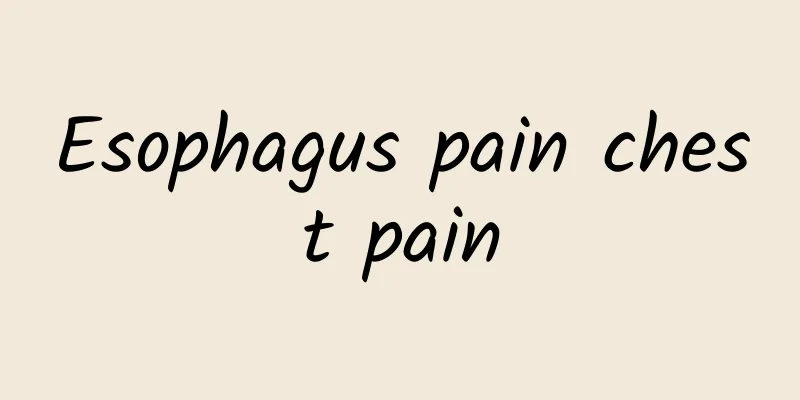The efficacy and function of traditional Chinese medicine Huangqi

|
The traditional Chinese medicine Huangqi refers to Astragalus, which mainly grows in Inner Mongolia, Shanxi and other regions and has high medicinal value. Astragalus has a good therapeutic effect on diseases such as uterine prolapse, chronic nephritis proteinuria, and diabetes. When using Astragalus, we must have a full understanding of its functions and effects to ensure symptomatic treatment to the greatest extent. So, what are the effects and functions of the traditional Chinese medicine Huangqi? The efficacy and function of Astragalus 1. Astragalus contains saponins, sucrose, polysaccharides, multiple amino acids, folic acid, and various trace elements such as selenium, zinc, and copper. 2. Astragalus is the most basic herb in traditional Chinese medicine for improving the immunity of the lungs and respiratory system. It can be used for sweating caused by low immunity. It can also be used to replenish qi and enhance spleen function and low metabolic capacity; 3. Astragalus is a tonic for Qi. For example, lack of energy in speaking, lack of energy in walking, and pale complexion are all manifestations of spleen and lung Qi deficiency. Astragalus can replenish the qi of the whole body. For example, Astragalus can be used for qi deficiency in the upper body, and it can also be used for qi deficiency in the lower body. 4. Raw Astragalus has the effects of invigorating Qi and strengthening the exterior, promoting diuresis and reducing swelling, detoxifying, and promoting tissue regeneration. It is suitable for spontaneous sweating, night sweats, blood stasis, edema, carbuncles that do not ulcerate or ulcers that do not heal for a long time, etc. Honey-roasted Astragalus has the effects of replenishing qi, nourishing blood, and benefiting the middle. It is suitable for internal injuries, fatigue, spleen deficiency, diarrhea, qi deficiency, blood deficiency, and qi deficiency. 5. Astragalus has the effects of reducing blood viscosity, reducing thrombosis, lowering blood pressure, protecting the heart, regulating blood sugar bidirectionally, resisting free radical damage, anti-aging, anti-hypoxia, anti-tumor, and enhancing the body's immunity. It can be used to treat heart disease, hypertension, diabetes and other diseases. Astragalus can also dilate blood vessels, improve skin blood circulation and nutritional status, so it is effective for chronic ulcers that do not heal for a long time. It can also eliminate proteinuria in patients with nephritis, protect the liver and prevent the reduction of liver glycogen. Use Astragalus with caution in three types of kidney deficiency1. For patients with kidney disease caused by yin deficiency, dampness, heat, and heat toxicity, the use of Astragalus will generally cause toxic side effects and should be prohibited. Because Astragalus is sweet and slightly warm in nature, taking it will cause heat in patients with Yin deficiency, which can easily damage Yin and cause bleeding; while taking it will easily cause evil to stagnate in patients with damp heat and excessive heat toxicity, making their condition worse. If you must take Astragalus, you must use it in combination. 2. Symptoms of Yin deficiency: hot palms and soles, dry mouth and throat, back pain, hot flashes and night sweats, insomnia and nightmares, red tongue without coating, and thin and rapid pulse. Symptoms of damp-heat: bitter taste in the mouth, dry mouth, yellow and greasy tongue coating, etc. Symptoms of severe heat toxicity: various purulent infections, such as acne infection, pharyngeal infection, peritonitis, etc., manifested as flushed face, red throat, dry throat, sore throat, bitter and dry mouth, red lips and tongue, yellow and dry tongue coating, slippery and rapid pulse, etc. 3. When patients with Yin deficiency use Astragalus, it must be used in combination with Yin-nourishing medicines, such as Raw Rehmannia, Cooked Rehmannia, Scrophularia, Ophiopogon, Asparagus, Polygonatum, etc. Patients with damp-heat must be treated with drugs that clear damp-heat, such as Coptis chinensis, Artemisia capillaris, Scutellaria baicalensis, etc. Patients with severe heat and toxicity must be treated with heat-clearing and detoxifying drugs, such as Coptis chinensis, Gardenia jasminoides, Rhubarb, and Patrinia salsa. 4. Therapeutic value of Astragalus: The roots of the leguminous herbs Astragalus mongolica and Astragalus membranaceus. It is produced in Inner Mongolia, Shanxi, Gansu, Heilongjiang and other places. Dig up in spring and autumn, remove the fibrous roots and root heads, and dry them in the sun. Sliced, used raw or roasted with honey |
<<: How to relieve baby's hoarse voice
>>: Does taking Chinese medicine during breastfeeding have any impact on the child?
Recommend
How bad your farts smell can reveal your health
Colorectal cancer is the collective name for colo...
What to do if you have impotence
Men will feel very painful after suffering from i...
What to do if there are polyps in the uterine cavity
If there are polyps in the uterine cavity, you sh...
What are the effects and functions of chicken gizzard lining
Chicken is a common meat in our daily life, and i...
Why does my anus suddenly hurt?
The buttocks are rich in sensory nerves, especial...
Rehabilitation training after arthroscopic surgery
Human body activities are inseparable from the jo...
Stomach flu
There are many types of colds, the main ones are ...
People with kidney deficiency all have this smell on their bodies. Smell it and see if you have it.
There are many manifestations of kidney deficienc...
Can I take some anti-inflammatory medicine if I have sex before my period ends?
When you have your period, your uterus opens outw...
What causes pelvic effusion?
Pelvic inflammatory disease is a common gynecolog...
Causes of tinea capitis
The title is actually a kind of escape problem th...
What are the symptoms of anal inflammation?
Anal inflammation is also quite common in daily l...
What are the four types of infusion reactions?
Infusion is a relatively common method of treatin...
Can I apply a facial mask after removing a mole?
You cannot apply a facial mask immediately after ...
Can I apply hot compress to treat stiff neck?
Stiff neck is a disease that occurs very frequent...









